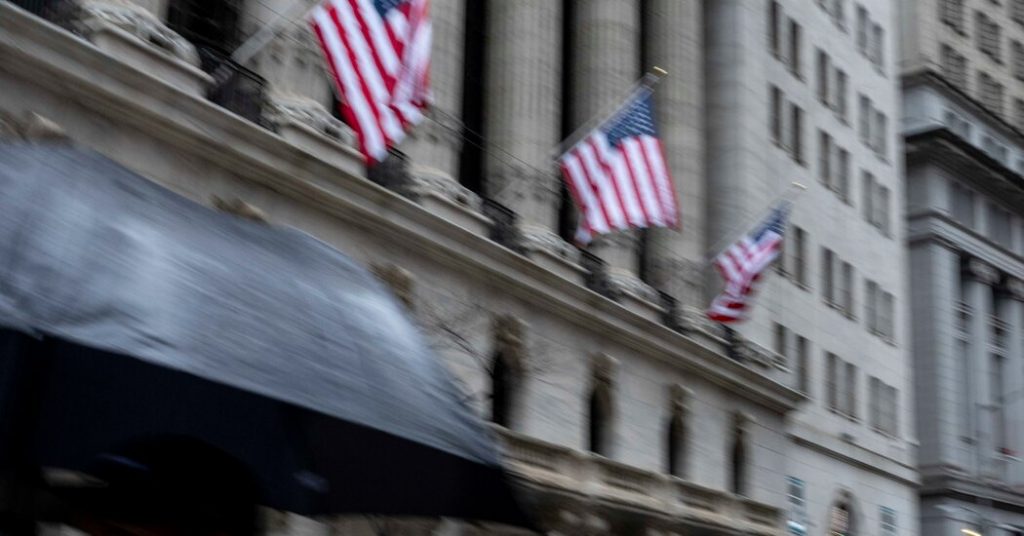In recent weeks, President Donald Trump’s aggressive tariff policies have rattled Wall Street, prompting investors to voice their concerns about the potential implications for both the American and global economies. With hedge fund billionaires and key financial executives publicly critiquing these tariffs, the atmosphere on Wall Street has become increasingly charged.
Hedge Fund Billionaires Speak Out
By the beginning of the week, notable figures in the finance world were pouring their frustrations into social media, reflecting a growing discontent with the administration’s trade strategies. Billionaire hedge fund manager William A. Ackman, a vocal supporter of Trump’s presidency, took to X to express his dismay: “The global economy is being taken down because of bad math. The President’s advisors need to acknowledge their error before April 9th and make a course correction before the President makes a big mistake.” This sentiment of urgency was echoed by his contemporaries.
Others, like Andrew Hall, an oil trader, criticized the silence of other financial elites, questioning why they are not standing up against what he termed “this stupidity.” Hall applauded Ackman’s willingness to confront the situation, calling for more voices from within the financial sector to speak out.
The Broader Market Response
As discussions about the tariffs unfolded, the stock market experienced extreme fluctuations. On Monday, the Dow Jones Industrial Average recorded its largest intraday swing ever, fluctuating nearly 2,595 points before settling down. Ultimately, the index lost 349 points, contributing to a grim outlook as concerns about Trump’s tariff policies weighed heavily on stock valuations.
According to reports, while the S&P 500 dropped over 0.2%, the Nasdaq Composite managed to make slight gains, revealing a divergent performance among sectors. Investors are particularly concerned about tech giants like Apple, whose significant reliance on Chinese supply chains has left its stock vulnerable to tariff-induced price increases. As Apple’s market cap eroded by approximately $638 billion over just three days, analysts began forecasting potential price hikes for consumers.
Concerns About Recession
Wall Street analysts are increasingly predicting a downturn sparked by Trump’s tariff policies. CEO Larry Fink of BlackRock echoed widespread fears during a recent interview, suggesting that the recession might already be upon us. Seventy percent of CEOs surveyed by CNBC’s Council believe that Trump’s tariffs will provoke a recessionary environment.
Even more alarming is the sentiment expressed by some of Wall Street’s most prominent figures. As stock prices remain under pressure, skepticism mounts regarding the likelihood of an effective resolution. The timing coincides with the upcoming earnings season, where analysts predict companies will report negative impacts due to the levies, leading to further pessimism around economic growth.
A Potential Off-Ramp for Trump
A sudden ripple of hope emerged briefly on Wall Street when rumors of a possible delay in tariffs circulated. Traders eagerly grasped at this potential “off-ramp,” seeing it as an opportunity for the president to pivot away from punitive measures against global trade partners. However, once the rumor was debunked, the market slid back into negativity.
Despite the speculative excitement, analysts suggest that for Trump, the path to market redemption lies in his ability to communicate a viable plan for negotiation. Establishing dialogue with countries affected by tariffs, especially in light of substantial stock market losses, could calm investor fears. However, as of now, the administration’s mixed messages concerning long-term strategies and tariff implementation only serve to heighten market volatility and uncertainty.
The Analyst Perspective
Mike O’Rourke, chief markets strategist at Jones Trading, noted that the financial community must remain firm in its stance for change. “We need this market to crash — to keep the pressure on the administration,” he asserted. This controversial statement from a respected analyst highlights the critical challenges that Trump’s tariff strategy poses to the business community.
As Wall Street anticipates upcoming negotiations with foreign trade partners, many investors remain hopeful yet cautious. Significant shifts in trade relationships are necessary to avoid potential economic fallout. The environment is charged, with the stakes high for both the markets and the White House. In a time marked by uncertainty, it’s pivotal for the administration to step forward decisively.
Final Thoughts: Navigating the Future
As the effects of Trump’s tariff policies unfold, business leaders and investors alike remain vigilant. The discourse emerging from these discussions reveals an unmistakable call for clarity and effective action. The impending negotiations could either serve to stabilize the markets or plunge them into further uncertainty.
In the face of potential recession and ongoing volatility, Wall Street’s reaction is not merely a reflection of fear but a demand for reliable leadership and sound economic policy. The coming weeks will be critical as stakeholders watch closely for indications of how the Trump administration will navigate this complex trade landscape. Feedback from the investment community could well dictate the future of economic policy in the U.S. and beyond.

